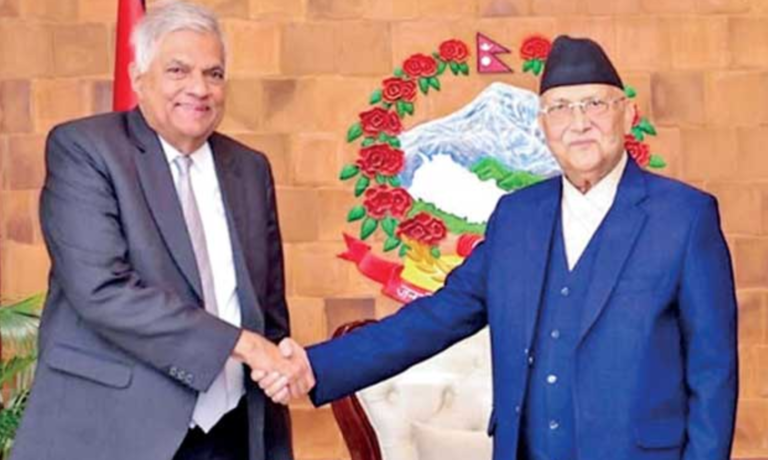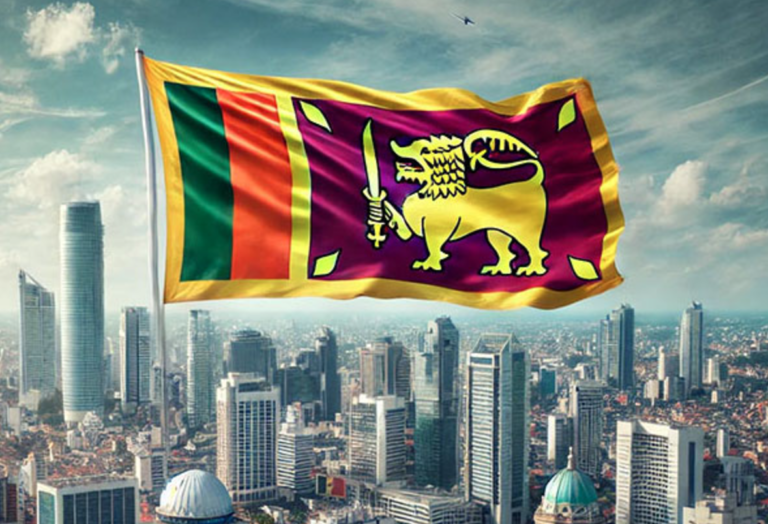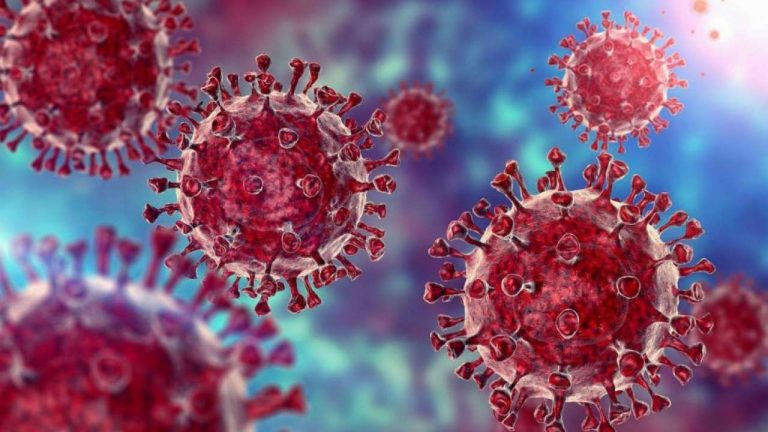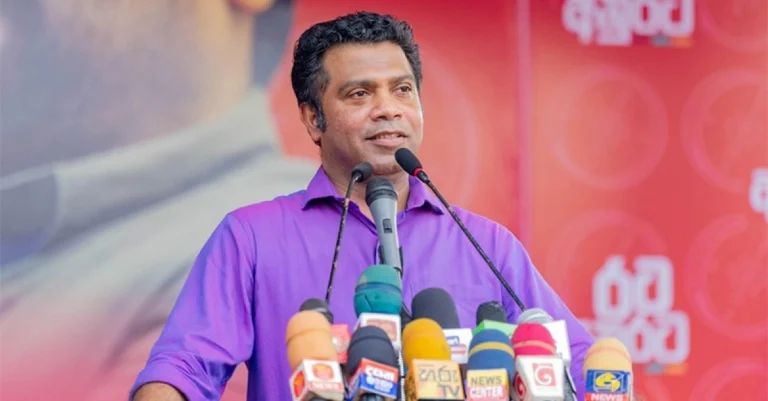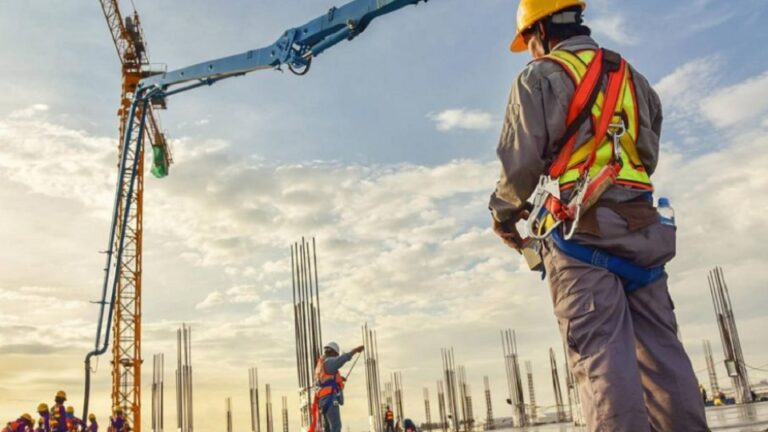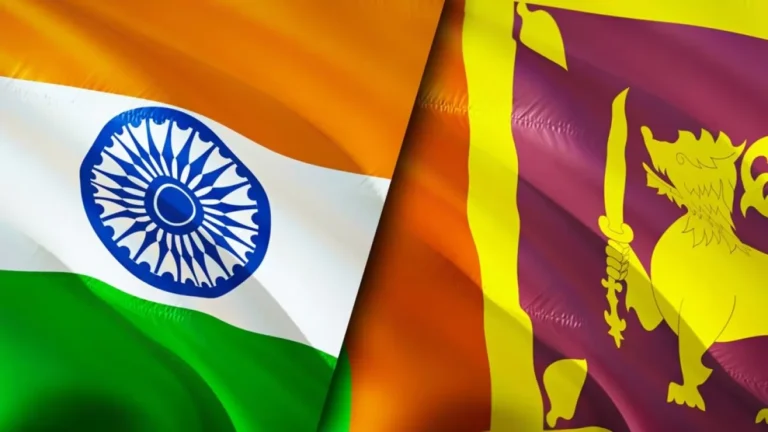January 02, (LNW) Colombo:
Those who have been in the administration of Rugby for a long
time, who have subjected the country to fines, and who have owed
the administration of Rugby a debt, have stopped their activities
by properly and improperly maintaining power at home and
abroad, relying on politicians and high-ranking officials of the
Ministry, and obstructing the administration of Rugby, and are
preparing to go for a new election in accordance with the order of
the court and under the guidance of the new Minister and Deputy
Minister.
There are reports of attempts to halt this election through the
influence of a prominent figure in sports, involving the President
and the Prime Minister. It is also reported that there is an attempt
to go to court against this election, which is being held in
accordance with a court order.
Those who acted improperly during the candidate selection
process for this election, starting with the operations of the
provincial associations, are now witnessing their actions return to
them like a boomerang. In particular, an individual who advised
and complained to Minister Roshan Ranasinghe, arguing that two
provincial associations should be permanently banned based on
non-payment of membership fees, has been prevented from
assuming the position of chairman due to the non-payment of
membership fees by the provincial associations that had finalised
those nominations. It is a tragedy that someone who was the
loudest critic, insisting that such situations should not be
accepted, is now unable to run for the presidency for the very
same reason.
It is also unthinkable that several provincial associations would
endorse him after he vehemently advocated for the
disenfranchisement of such associations. This raises serious
questions about the conscience of those associations in principle.
While it may be their wish, it is a mistake not to have established
the necessary foundation to make it legally valid.
Similarly, a businessman involved in sports who attempted to run
for the position of Vice President from the Western Province was
also not qualified, even within the Western Province itself.
Currently, when expressing interest or disapproval for these
nominations, there is a tendency to focus more on whether the
individuals are suitable, rather than the standing of the sports
clubs, especially in light of the situation in the Western Province.
Members of certain groups may receive one or two votes, or only
a handful of votes, while other individuals affiliated with the same
groups may secure a significantly higher number of votes.
What led to the prolonged instability in rugby
administration over the years?
That is clearly because the culprits have not been punished. Not
only the administration, but also the sports clubs, which
sometimes face difficulties in functioning properly, as well as the
rise of the entire rugby game, has been halted due to the failure of
the administration and the Sports Ministry to take action against
the culprits. The funds sent by World Rugby to improve the
conditions of sports unions and clubs across the provinces are
instead being used to pay fines for mistakes made by officials.
The same officials who made the mistakes are now informing
World Rugby to deduct those fines annually as installments from
the funds sent for development.
Subsequently, due to various political considerations and other
factors, those who depleted rugby’s funds have driven it into debt.
It was hoped that with Sports Minister Namal Rajapaksa, a former
rugby captain, taking office, rugby would rise to new heights.
However, instead of progress, something entirely different
unfolded at that moment.
A friend of his, an incompetent individual, considering his
connections with Asia and with the support of the Asia President,
appointed an advisory committee to oversee the rugby
administration in Sri Lanka and appointed him as its head. Also,
the sponsorship of domestic rugby was taken to the Asian level
and there was no sponsor for domestic rugby. However, Rizly
Illyas, who led the administration, resolved all those problems
and found a main sponsor as well as other sponsors, both local
and foreign, and took rugby forward, which was thought to be
falling on its knees in front of ministers and Asia.
It was during that time that the Sri Lankan president personally
used an internet phone to blame the President of Asia for the
illegal and unethical interference in Sri Lankan rugby. Taking
advantage of this, the Asia President started throwing stones at
Sri Lanka Rugby while Sri Lankan officials were present. The Sri
Lankan people, politicians and officials in the ministries did not
press charges or pressure the person who fought for the
independence of Sri Lanka Rugby but gave them the stones he
was throwing.
The current lack of a proper rugby program and administration is
a result of the increasing number of rugby courts being influenced
by political and government officials in Sri Lanka, who have
allied with the President of Asia, disregarding the local rugby
scene and its independence. Additionally, it is fueled by
unsuccessful individuals, unable to secure power in rugby
elections, who are now attempting to gain positions through the
political power granted by law.
This is the moment to resolve that situation. If we are to amend
the constitution now, rather than acting as subservient to Asia or
the international community, there are several key factors that
must be carefully considered. There should be an analysis tailored
to the country’s situation, alongside an agreement with World
Rugby’s vision. These actions should be carried out through
extensive information exchanges with World Rugby and repeated
discussions.
Holding of office election
It will not be difficult for those who should hold power under the
current constitution to do so once they are democratically elected.
The necessary environment is being created for this. The election
committee will be composed of two esteemed retired Supreme
Court judges. With that representation, five people with a broad
understanding of sports law have been selected by the legal group,
considering everything, to compete for the office.
Except for the two positions of president, the appointments to
other positions will be made without competition. Any objections
must be submitted by January 7th and should be presented in the
proper order.
Possibility of objections
These decisions are shaped by the indecision of those who are
expected to retain power regardless. Those who have clung to
power through alternative means for years, obstructing elections,
are now attempting to block the opportunity for a group to assume
power through a clear constitutional process. Those who failed to
even properly run for office are challenging the Election
Committee, which consists of two retired Supreme Court judges,
and are dragging the leg of the election that is set to be held after
many years.
Priyantha Ekanayake, who is currently nominated to the National
Sports Council, is aware of the situation and the fact that Sri
Lanka Rugby is going astray due to the lack of elections. Given
that Priyantha has many connections and friends within the rugby
community, he may seek their assistance in reaching key figures
such as the President and Prime Minister. Since his responsibility
is not to protect his friends, it is likely think that, as someone
committed to justice in sports, he will intervene to provide
opportunities for individuals who have failed to address these
issues, or for businessmen who are not entitled to the powers
granted by the Sports Act.
He is also well aware of the recent history of rugby in Sri Lanka.
He understands not only the actions of politicians and high-
ranking officials, but also the role of individuals who have driven
rugby into problematic situations, leading to debt. This has
happened because the rugby administration and the Sports
Ministry have failed to take action. Furthermore, these same
individuals hold positions internationally and are obstructing the
independence of rugby in Sri Lanka. Therefore, it is crucial to
fully understand the constitutional and independent position that
a rugby administration, driven by great passion, holds, as well as
the far-reaching impacts on the independence of the rugby game
within the country.
However, the appointed administration must take legal action
against those who have obstructed the establishment of rugby as
a passion in Sri Lanka and have tarnished its reputation. It is also
essential to address how the debt arose, and if those responsible
for it cannot present accurate and reasonable explanations
regarding the expenses.
We are concerned about those who attempt to run for office, fail,
and then resort to legal means to block others. It is unlikely that
the judiciary or politics, with their broad understanding of the
situation, will allow this power struggle to escalate.
Let’s wait and see, however. Let’s hope that the establishment of
a new administration will proceed without obstacles,
demonstrating the personality of the local rugby game..!

